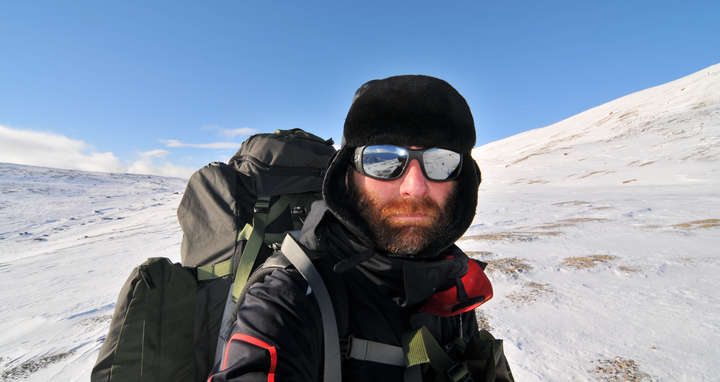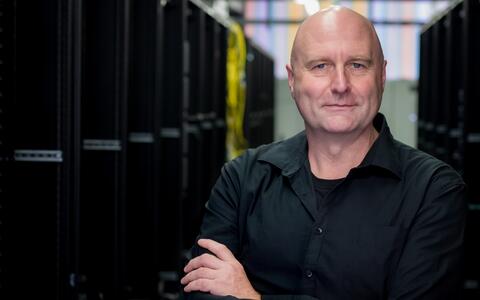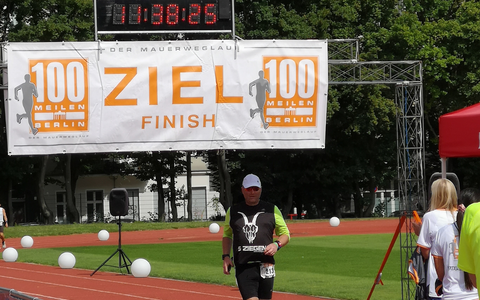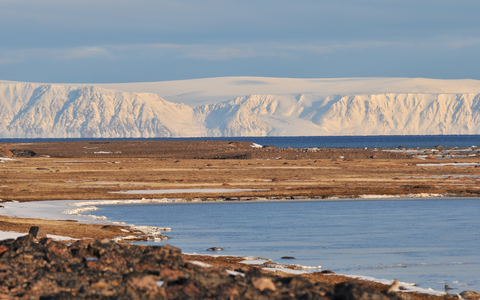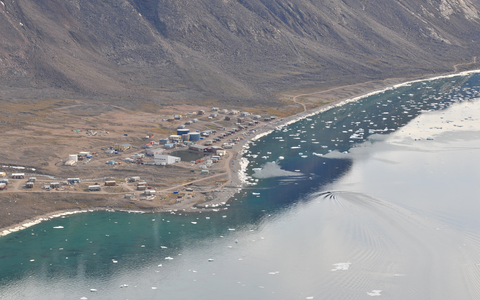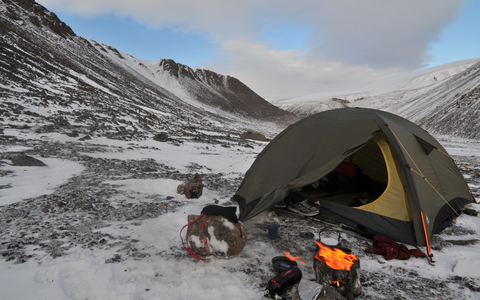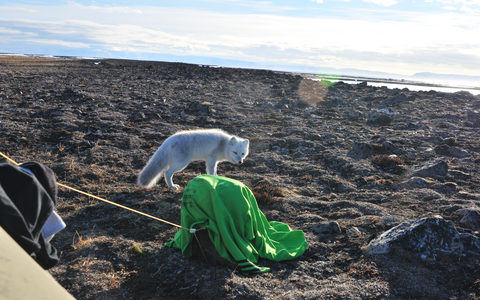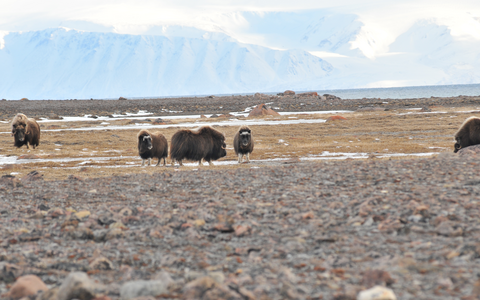The IT boss with wanderlust
3,300 computers, 1,000 servers, 16 petabytes of memory – the IT infrastructure at the Max Delbrück Center for Molecular Medicine in the Helmholtz Association (MDC) is comprised of these components. Around 50 employees in the IT department ensure that the 2,100 or so users can work with this infrastructure.
Karsten Häcker has been the CIO of the MDC since 2017. Prior to this, he was the Head of Corporate IT at the Forschungsverbund Berlin (FVB) research association. As the Head of IT, he helped to set up the Institute for Advanced Sustainability Studies Potsdam from 2012 to 2015. Until 2011, he held a managerial role at euroscript International and euroscript Germany. He is also on the executive committee of VOICE, the German Federal Association of IT Users.
That's how we know him at MDC: Karsten Häcker, Head of Corporate IT.
Learning composure
But information technology is not the only passion of the native of Berlin. Karsten Häcker longs for adventure. On his extreme travels, he has learned one thing above all: composure. After all, if you can keep a cool head in difficult situations, you will be able to get yourself out of them more easily. This goes for a snowstorm in the Arctic as much as it does for a cyberattack.
Can you describe a typical day at work in the IT department?
Some of my colleagues work on the helpdesk tickets. It might sound a bit monotonous, but the requests are actually extremely varied. Colleagues also work on projects in teams, for example when a new working group or technology platform is set up and requires IT infrastructure.
How many tickets are sent to the IT department?
Last year we had precisely 10,952 support requests; this year we have worked on an average of 551 tickets a month so far. We keep an accurate tally here because we want to know whether our training sessions have an impact or if there are error sources we can fix.
It’s not all about technology
Is there a set of guidelines for your work?
The question is not: ‘What kind of computer do you need?’ But: ‘What do you want to do with your computer?’
The question is not: ‘What kind of computer do you need?’ But: ‘What do you want to do with your computer?’ What I’m trying to say is we in the IT department do not use available technical capabilities as a starting point, but the needs of the users. Let’s take electronic personnel records as an example. These aren’t just records. They are used by many departments, and each one has its own requirements for the personnel records. We need to be able to understand these requirements and the associated processes and translate them into a system. Handling the processes in each department, both in science- and admin-based areas, is just as much a part of our work as setting up computers and resolving technical issues.
Has the MDC ever been targeted by hackers?
We have been threatened by cyberattacks several times, especially at the start of the coronavirus crisis. So far, they have been distributed denial-of-service (DDoS) attacks, where the targeted server is overwhelmed by a flood of Internet traffic in an effort to overload it. None of these attacks have been successful, and we have installed an array of measures to keep it this way.
Swiss cheese tactics against hacker attacks
What kind of measures?
First of all, we have implemented a number of technical provisions in accordance with the Swiss cheese model – when one provision fails, it’s the next one’s turn. Secondly, we are making efforts to raise awareness among employees, who should know not to insert third-party USB sticks in the company’s computers, how to detect phishing emails, the things you shouldn’t say over the phone, for example. We are planning mandatory IT security training for new employees in the future. We also invite users to training sessions in the wake of recent events, for example after the major cyberattack on the Technical University. This offering is very popular.
Made it! After 161 kilometers, Karsten Häcker reaches the finish line: “The 100 miles were more challenging than I thought. But cool, somehow.”
You recently ran the Berlin Wall Trail. 161 kilometres in one go, completed in 29 hours and 38 minutes. Why would you put yourself through something like that?
I used to run marathons. At some point, it got boring. If you can happily finish a marathon in a reasonable time, you can carry on running. Many people don’t try it out. But the longer you run, the less important your body becomes and the more important your head is. And before you know it, 161 kilometres goes better than many may have imagined.
Some might think that you would become lean and wiry after such exertion – especially as you must have spent a while training for it. But you haven’t at all.
(Laughs) I need reserves. I can plan them in.
You mean for your adventure holidays?
Yes. My frequent runs have taught me that I can burn fat quickly.
Longing for limitlessness
You have to tell us a little more about your travels.
As a former GDR citizen, I have always loved to travel. I visited Romania several times back in the GDR era. After German reunification, I went to Iceland, the American Cordillera... In the mid-90s, I spent two months cycling through the Gobi Desert. That really took it out of me. Six years ago, I hiked in the Arctic tundra, where eternal ice and land meet. It was one of my favourite holidays. The starting point was a settlement in the far north east of Canada, Grise Fiord, a village with a mostly Inuit population of 120. I hung around here for two and a half months. Sadly, winter set in several weeks too early, overnight and with a drop in temperature of ten to 15 degrees. I woke up in the morning and was totally snowed in. I needed to make drastic changes to my planned routes.
Do you long for adventure?
You could say I have a weakness for landscapes. For limitless space.
What did you have with you in the Arctic?
Not a lot. A rucksack with a tent, roll mat and sleeping bag, a camping stove and pemmican –food consisting of dried meat, vegetables and fat invented by the Native Americans.
How did you prepare for this trip – aside from your extreme running?
The Romanian mountains are a great place to practise and test equipment, as they have very harsh terrain with plenty of snow. It’s beautiful! Romania is the country I visit for short breaks in between holidays. I was also able to contact someone who lives in Grise Fiord via Facebook. An Inuit who was flabbergasted when he saw the crazy German actually standing in front of him.
When will you be back?
What do your family say about it?
My wife knows I need this. We've discussed it. Our friends are pretty torn. After all, there is a chance of not returning from a trip like this.
Aren’t you scared of this possible consequence?
No, otherwise I wouldn’t be able to do it. But sometimes I wished I had a red buzzer that I could whack and wake up back home again. I really did suffer. Constant temperatures of minus 20 degrees, without a roll mat... It’s fair to say I had the odd screaming fit.
What happened to your roll mat?
A major rookie error: you shouldn’t use inflatable roll mats in the Arctic, as the air inside freezes and the ice crystals bore their way through the fabric. At some point, my repair kit was all used up and the fly sheet and sleeping bag were all that separated me from the frozen ground.
Were there any life-threatening situations? Did you come face to face with any polar bears?
I met many animals: musk oxen, mountain hares, snow wolves, seagulls... Sadly no polar bears, although I would have loved to see one. The Canadian Mounties – that’s what their police are called – radioed each other to ask whether any of them had seen a polar bear that I could photograph. But the polar bears were all in the south at that time of year. We found paw prints in the snow just once. They were so huge that I no longer thought it was bad I didn’t get to meet them... Returning to the village alone in the fresh snow was also challenging, as I didn’t know what was under the snow. I slipped into the depths a couple of times – these kinds of things can happen.
Strength in serenity
Have these moments left their mark on you?
This kind of trip is also not suitable for those wanting to find themselves. You should be pretty grounded and have things straightened out before you set off.
Yes. They have given me the gift of composure. I no longer panic in precarious situations – I take the time to think about what needs to be done next. About the worst that could happen. And how I’m going to deal with it. This kind of trip is also not suitable for those wanting to find themselves. You should be pretty grounded and have things straightened out before you set off. Especially if you're travelling for weeks on end on your own and there’s nobody to talk to. It can be really dangerous if your inner demons are awakened.
Can you relate these experiences to your day-to-day work?
Of course I can. Whether I’m planning a trip or a project, everything needs to be well thought-out and prepared. To do this, I need to gather information and think about possible incidents and exit strategies. I need to have an open mind and respond flexibly to changing circumstances. I have also learned to accept that aborting plans does not mean defeat – sometimes it’s a necessary decision. My managerial style is also characterised by composure and trust: I don't control my employees, I let them do their thing.
You studied at the Berlin University of the Arts. That’s unusual for a CIO.
Yes and no. I had previously studied IT at the Dresden University of Technology. I then wanted to break out in a totally new direction and studied at the University of the Arts. I also did a course in Communication Sciences in Valencia. But I didn't really like it and I dropped out. I’m happy I went off on this tangent. Studying communications helped me to become a CIO and to do the translation work I just talked about – you know, mediating between the requirements of users and IT employees. I’m not good enough to do programming. I can’t do anything right, that’s why I’m the Head of IT (laughs).
It’s clear to see you get survival right. Do you have plans for your next adventure?
Yes, I’ll be heading off in 2023. Maybe I’ll go on another Arctic expedition and pick up where I had to stop last time. Or maybe I’ll hike the Pacific Crest Trail from Mexico to Canada. Or maybe I’ll think of something totally different. After all, there’s still some time to decide.
Interview by Jana Ehrhardt-Joswig.

